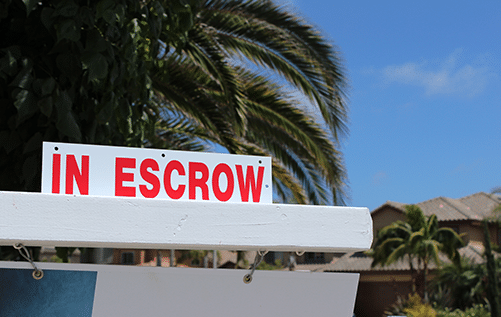When it comes to selling, purchasing, or even refinancing real estate in Las Vegas, you will always have to deal with closing costs. These include processing fees to insurance costs, mortgage taxes, revaluations, and a handful of other costs that can stack up to put a significant dent in your earnings.
These costs can change depending on the type of property. For example, the closing costs for luxury real estate in Las Vegas are much more than normal house or condo closing costs. The main determining factor; the mortgage company you’re working with, your real estate agent, and the price of your property.
These costs usually amount up to 2% to 5% of the total cost of the property. So, if the purchase price of the home you’re looking for is $2.5 million, you may end up having to pay somewhere between $50,000 and $125,000.
There are also some third-party fees that are applicable along with closing costs. Escrow is one such payment, a fee that becomes applicable when you involve a third party to manage your or the buyers’ funds, distributing them according to the transaction. We’ll discuss escrow in detail below.
Before we get into those details, here is a table showing the estimated costs you will have to incur in order to secure a $2.5 million loan to purchase real estate in Las Vegas.
| Cost/Fee | Fee |
| Loan Origination (1%) | $25,000 |
| Escrow (1%) | $250 |
| Discount Fee (0.25%) | $6,250 |
| Processing Fee | $450 |
| Underwriting Fee | $500 |
| Transfer Fee | $50 |
| Credit Report | $40 |
| Tax Services | $50 |
| Flood Certification | $20 |
| Courier Fee | $20 |
| Revaluation/Appraisal | $450 |
| Insurance | $550 |
| Recording Fee | $110 |
| HOA Fee (Luxury Real Estate) | $1,000 |
| Property Tax Reserve | $2,000 |
| Total | $36,740 |
This shows that with all the third-party and associated costs added, you may end up having to pay roughly 1.5% more. The smaller your loan amount, the larger the percentage you’ll have to pay as associated costs.
Now, let’s take a closer look at these costs.
Escrow Fee
As mentioned above, escrow is an agreement between you, the lender, and a third party entity that holds on to the funds once dispersed. They are responsible for handling all the transactions included in the sale of property.
The escrow fee is what you pay the escrow company or attorney for their services as the third party. In Nevada, the typical duration of an escrow is 45 days and the fee is between 1% and 2%.
Lender Fee
Whether you finance real estate in Las Vegas through a private bank, a mortgage company, credit union, or government-backed loans as provided to military personnel, law enforcement officers, firefighters, or other employees, you will be charged a lender fee.
This fee can be broken down into several others:
Origination Fee
Think of this as a service charge. This is a portion of your loan amount that the lender will keep to originate your loan. This fee varies from lender to lender, but the national average is 1% of the loan amount as of 2021.
Some lenders don’t charge an origination fee but charge a higher interest rate, while some may charge a higher fee at the start and give you a lower interest rate.
Discount Fee
This fee can be somewhere between 1% and 2% of the loan amount. These are fees that you may or may not pay. If you pay a discount fee, the lender will lower your interest rate. In the business, this practice is referred to as “buying the rate.” Each discount point is usually worth 1% of the loan amount.
On average, each discount point is worth 0.25% reduction in the interest rate in Las Vegas. We don’t recommend our clients to pay a discount fee more than 1% – especially if the mortgage period is less than 7 years.
Processing Fee
This is usually a fixed amount that you’ll have to pay for the ‘effort’ the lender will have to put in, in order to give you the loan. Typically, the processing fee amount is used to pay the staff salaries or bonuses for gathering the necessary documentation for your loan.
Processing fee varies from loan provider to loan provider. Some don’t charge a dime, while others charge over $900.
Underwriting Fee
This is another fee that goes into paying the staff working on the loan approval chain. Underwriters are people who analyze your documents and the loan application, deciding on whether to approve your loan or not.
Credit Report Fee
This is something that lenders can choose to do. They pull your credit report to take a better look at your finances and history. If your credit score is too low, lenders may give you a chance to increase it, but that can cost you several hundred dollars.
It may be well worth the effort, considering that the few hundred dollars may end up saving thousands of dollars for you. A better credit history can lead to reduced interest rates.
Flood Certification
Las Vegas is surrounded by mountains and therefore, according to FEMA, in danger of flash floods; specifically Henderson. Lenders, before giving you the sum you need, will consider whether your property lies in a flood zone. If it does, you will need flood certification and flood insurance, otherwise no lender will give you a loan.
Apart from these, there are some minor costs associated with buying and selling real estate, such as HOA fees, taxes, transfer fee (may or may not be applicable), courier fee for documents, record keeping fee, and more may rack up and raise the costs.
If you’re looking for help reducing these closing costs for buying and selling real estate in Las Vegas, The Vegas Group can negotiate on your behalf where applicable. Get in touch with us and let’s start selling your house!
Disclaimer: There are numerous factors to consider in every investment, including real estate. The information provided above is just a matter of opinion and can change with time. It shouldn’t be construed as legal or tax advice; neither does the report constitute a financial promotion or investment advice. It is general information and before making any such decision, you should seek out licensed professionals and see all ends clearly.




